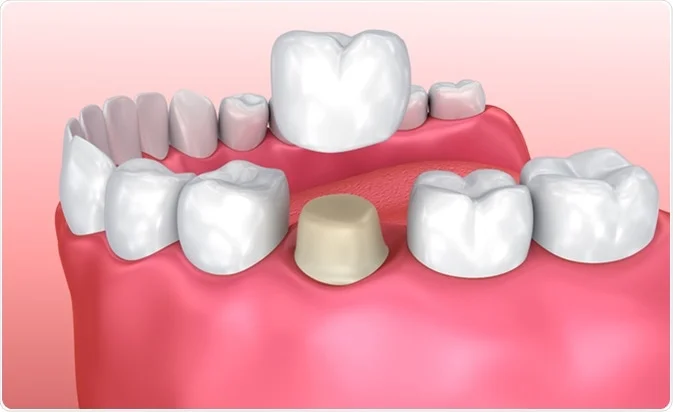There have been significant advancements in dental care in recent years. Still, many people suffer from cracked, eroded, and even damaged teeth. One of the best remedies in such a situation is dental crowns. Dental crowns help to correct a range of cosmetic defects while adding strength to your damaged or decayed teeth. The Woodlands dental crowns are custom-made caps that fit the entire tooth like an airtight armor suit. One of the advantages of dental crowns is their durability. You can also take some steps to prevent them from damage and extend their lifespan. Here are some dental crown tips to include in your efforts.
Avoid sticky, crunchy, or hard food
Just like your natural teeth, crowns are strong and durable but prone to damage. Certain foods can significantly impact the long-term health of your dental crowns. Foods like hard candies, nuts, caramels, taffy, and chewing ice can cause problems for your crowns. Your dental crown can crack, chip, or break. They can also become loosened or weakened when sticky foods get stuck between your gums and crowns. Try to avoid or eat such foods in moderation.
Practice good oral hygiene
Dental crowns are artificial but still need continued oral care to stay healthy. Flossing is vital since food particles and germs can still become trapped or caught between your gum, the crown, or the adjacent tooth. Brush your teeth at least twice daily to protect them from decay and help your crown last longer.
Avoid bad habits
Do you open packages using your teeth? Do you bite your nails? Chew on ice or pencils? Do you grind your teeth when stressed? These actions can damage your dental crowns and even chip or break your natural teeth. Hard objects can fragment and get stuck between your gums or even damage them. Your teeth are not to be used as tools; they were intended for chewing.
Invest in a night guard
It is one thing to stop clenching and grinding habits while awake and a different story when it happens unconsciously in your sleep. This is because you are aware that you are doing it, but when asleep, most people are not aware that they are clenching and grinding their teeth. Bruxism may not seem like a severe problem, but it can crack or break your dental work with time.
Using a night guard cushions your lower and upper teeth, preventing them from coming into complete contact. A mouth guard can save you from having more dental work or buying a new dental crown due to accelerated damage.
Routine dental visits
In addition to the above steps, routine dentist visits are crucial to keeping your dental crowns in top shape. Checkups every six months are essential to keep your crown, gums, and surrounding teeth in good shape. During these visits, your dentist will assess your crown to ensure it is in fine condition.
Dental crowns help you with various dental concerns. If you take good care of them like natural teeth, you can maximize their benefits. Flossing, brushing, avoiding hard foods, and bad habits helps your dental crowns last longer. Contact or visit Scott Young, DDS, to learn more about dental crowns and how to take good care of them.





